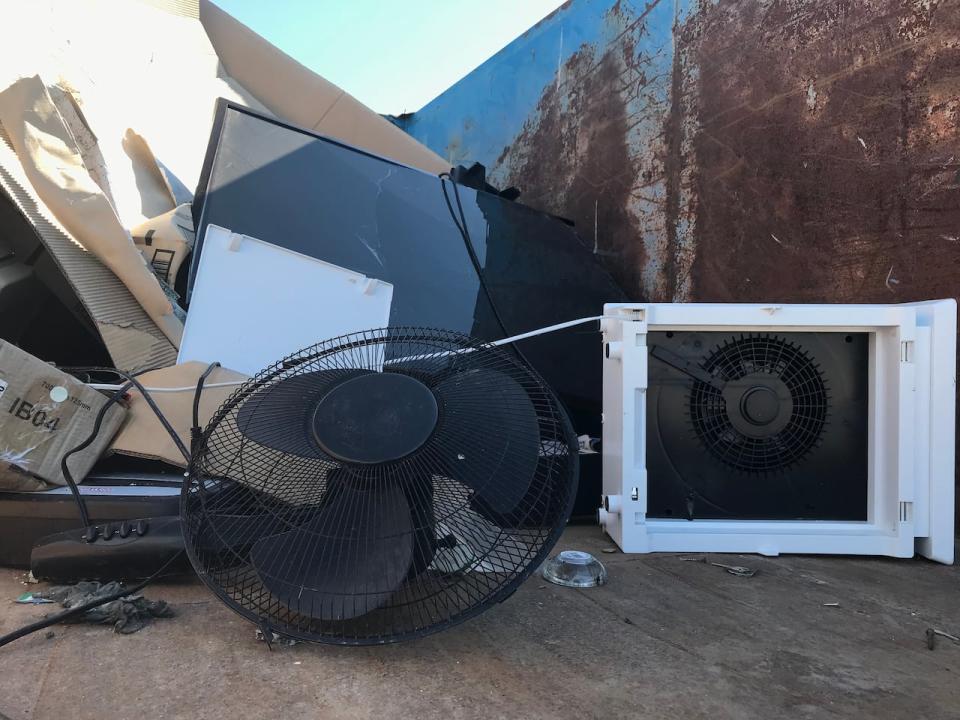N.W.T. considers making producers deal with used oil, tires and electrical items
The N.W.T. government is exploring a new way to dispose of used oil, car tires and electrical items, by shifting the responsibility for those items back onto whomever made them in the first place.
Extended producer responsibility, or EPR, is a policy that takes the physical and financial responsibility for products and packaging off of governments and shifts it to companies by making them deal with items once they've reached their end-of-life.
All Canadian provinces have some form of EPR program already, and the Yukon is working on one for common blue-bin items as well as paint, waste oil and antifreeze.
Jay Macdonald, the N.W.T.'s environment minister, told the Legislative Assembly earlier this month his department was considering EPR for used oil, tires and electronics — items the government committed to diverting from landfill back in 2021.
At the time, it was estimated 10 transport trucks' worth of electronics and electrical items, 48 transport trucks full of tires, and 480,000 litres of used oil — which would fill 40 per cent of the Ruth Inch Memorial Pool in Yellowknife — could be diverted from N.W.T. landfills every year.

Tania Oosting, a spokesperson for the Department of Environment and Climate Change, told CBC News via email in May that since municipalities have "limited ability to effect the generation of waste," EPR incentivizes producers to make their products easier to re-use or easier to recycle.
Producers could include brand owners, manufacturers, importers, distributors and retailers, she said. The Recycling Council of Alberta previously told CBC News that in many jurisdictions, producers have come together and formed "producer responsibility organizations" to take on those recycling responsibilities as a group — either by using existing infrastructure and systems, or creating new ones.
The N.W.T.'s Waste Reduction and Resource Recovery Act was updated last fall to give the territory legal authority to create EPR programs.
Regulations will take years, says minister
Yellowknife North MLA Shauna Morgan and Great Slave Lake MLA Kate Reid both raised the issue of extended producer responsibility in the Legislative Assembly on June 7.
Morgan said EPR could "take a lot of burden off our communities who are spending many millions of dollars on creating and managing landfills."
One criticism of EPR is that companies may download the cost of having to recycle a product onto consumers. But Morgan pointed out that taxpayers are already on the hook for that.
"We just don't necessarily see it because it's costing our local community governments when they have to keep building more and more landfill cells," she said.
Morgan, a former Yellowknife city councillor, said the cost of managing a landfill and building a landfill cell is "quite shocking."
The City of Yellowknife set aside $6.7 million in its most recent budget, to expand its waste management facility.

Reid, meanwhile, pitched EPR as a solution to plastic being landfilled in the N.W.T. and other parts of Canada, and she pressed Macdonald for details about what work the territory was doing about it.
Macdonald said EPR is being explored for used oil, tires, electronics and electrical items because those materials are already segregated in landfills and carry environmental risk. He said work to create regulations is happening already and will continue to take several years.

 Yahoo News
Yahoo News 
